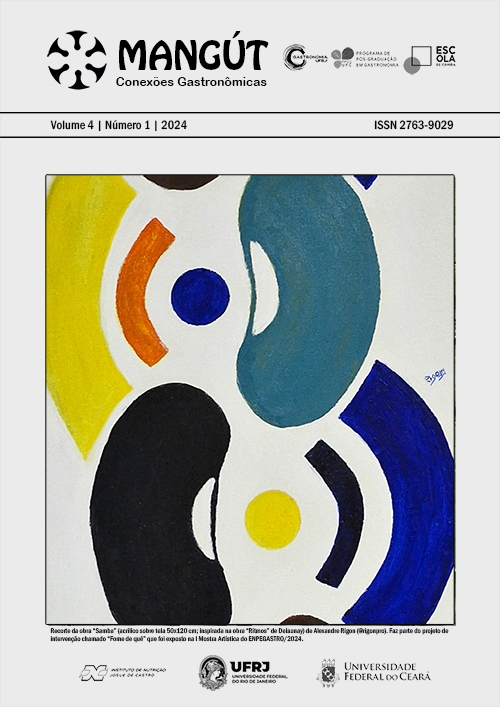Proposal for menus for school food with native species from brazilian biodiversity
DOI:
https://doi.org/10.70051/mangt.v4i1.62209Keywords:
Gastronomy, School meals, Healthy eating, Socio-biodiversity, Nutritional informationAbstract
Encouraging the use of fruits, vegetables and seeds from Brazilian biodiversity in school food menus can promote substantial changes towards healthy and sustainable eating patterns. The research aimed to develop afternoon snack menus for children aged three to five years in Early Childhood Education, using native species from Brazilian socio-biodiversity, and which meet the PNAE parameters. The menus were created based on the 94 native species of socio-biodiversity with food value. Five menus were created for the afternoon snack that provide 20% of the day's nutritional needs. Considering the food variety, two sweet preparations, two savory preparations and one drink were selected. The species selected as ingredients were: araçá, butiá, pinhão, taioba and pitanga. The culinary preparations were: araçá jelly, sweet butiá biscuit, savory pine nut biscuit, taioba pesto and cherry drink with milk. It was found that Brazilian biodiversity species are rich in nutrients and contribute to achieving the energy values indicated by the PNAE for school menus, being healthy and sustainable food alternatives.
Downloads
Published
Issue
Section
License
Copyright (c) 2024 Páulia Maria Cardoso Lima Reis, Daiane Yumi da Silva Chikuji

This work is licensed under a Creative Commons Attribution 4.0 International License.
Autores que publicam nesta revista concordam com os seguintes termos:
- Autores mantém os direitos autorais e concedem à revista o direito de primeira publicação, com o trabalho simultaneamente licenciado sob a Licença Creative Commons Attribution que permite o compartilhamento do trabalho com reconhecimento da autoria e publicação inicial nesta revista.
- Autores têm autorização para assumir contratos adicionais separadamente, para distribuição não-exclusiva da versão do trabalho publicada nesta revista (ex.: publicar em repositório institucional ou como capítulo de livro), com reconhecimento de autoria e publicação inicial nesta revista.
- Autores têm permissão e são estimulados a publicar e distribuir seu trabalho online (ex.: em repositórios institucionais ou na sua página pessoal) a qualquer ponto antes ou durante o processo editorial, já que isso pode gerar alterações produtivas, bem como aumentar o impacto e a citação do trabalho publicado (Veja O Efeito do Acesso Livre).



